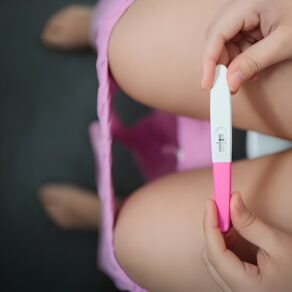Pregnancy tests serve as essential tools for women to confirm or rule out pregnancy, offering reassurance or guidance during pivotal moments in their lives. However, amidst the excitement and anticipation, questions may arise regarding the reliability and shelf life of these tests. One common inquiry is whether pregnancy tests can expire. Let’s delve into this topic to shed light on the longevity and accuracy of these crucial diagnostic tools.
Understanding Pregnancy Tests
Before exploring the expiration of pregnancy tests, it’s imperative to understand how these tests work. Most over-the-counter pregnancy tests detect the presence of human chorionic gonadotropin (hCG) hormone in urine. This hormone is produced by the placenta shortly after embryo implantation occurs, typically around six to twelve days post-conception. The concentration of hCG increases rapidly in early pregnancy, doubling every 48 to 72 hours, before eventually plateauing and declining later in pregnancy.
Expiration of Pregnancy Tests
Now, let’s address the pressing question: Can pregnancy tests expire? The answer is yes. Like many other medical products, pregnancy tests have an expiration date, beyond which their reliability and accuracy may be compromised. The expiration date is typically indicated on the packaging or the test strip itself and should be adhered to for optimal results.
Factors Affecting Test Reliability
Several factors can influence the reliability of a pregnancy test, even before its expiration date:
- Storage Conditions: Pregnancy tests should be stored according to the manufacturer’s instructions, typically in a cool, dry place away from direct sunlight and moisture. Exposure to extreme temperatures or humidity can degrade the test components and affect its performance.
- Packaging Integrity: The integrity of the test packaging is crucial in preserving the test’s reliability. Damaged or compromised packaging can allow moisture or contaminants to enter, potentially compromising the test’s accuracy.
- Test Sensitivity: Some pregnancy tests are more sensitive than others, meaning they can detect lower levels of hCG in urine. Higher sensitivity tests are generally more reliable for early detection of pregnancy, but they may also be more susceptible to degradation over time.
Can Pregnancy Tests Expire?
Amidst the realm of reproductive health, the question arises: Can pregnancy tests expire? Let’s explore this intriguing query.
Factors Affecting Test Reliability
Several factors can influence the reliability of a pregnancy test, even before its expiration date:
- Storage Conditions: Pregnancy tests should be stored according to the manufacturer’s instructions, typically in a cool, dry place away from direct sunlight and moisture. Exposure to extreme temperatures or humidity can degrade the test components and affect its performance.
- Packaging Integrity: The integrity of the test packaging is crucial in preserving the test’s reliability. Damaged or compromised packaging can allow moisture or contaminants to enter, potentially compromising the test’s accuracy.
- Test Sensitivity: Some pregnancy tests are more sensitive than others, meaning they can detect lower levels of hCG in urine. Higher sensitivity tests are generally more reliable for early detection of pregnancy, but they may also be more susceptible to degradation over time.
Conclusion
In conclusion, pregnancy tests can indeed expire, and their reliability may diminish over time, particularly if not stored properly. It’s essential for women to check the expiration date before using a pregnancy test and to store them according to the manufacturer’s instructions. If there’s any doubt about the reliability of a test, it’s advisable to use a new, unexpired test for accurate results. Remember, timely and accurate testing can provide valuable insights into one’s reproductive health journey, guiding decisions and offering peace of mind when needed most.





